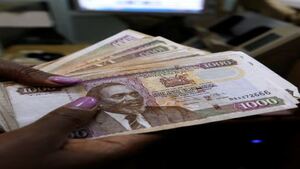This is contained in the Minister's answering affidavit in the matter of an urgent court challenge by opposition party, the Democratic Alliance (DA), against the implementation of the increase of VAT.
In his affidavit, Godongwana has rejected the DA's move to prevent the VAT increase from going ahead, adding that section 7, sub-section 4 of the country’s VAT Act empowers him to adjust the rate with some conditions.
The country’s National Treasury has released a statement indicating that neither it, nor the Minister, would be making any further comments on the VAT matter until it is ventilated in court on Tuesday, 22 April.
Godongwana says there is no valid legal ground for the DA to challenge or have set aside a decision that has been made under the constitutionally authorised provision of section 7, sub-section 4 of the VAT Act, which empowers the minister to determine VAT adjustments. The DA made an application in two parts, A and B.
Senior Associate at Roux Legal, Cameron Phillips explains,” Part B of the DA's application speaks to the constitutional validity of the power given to the Finance Minister in Section 7 (4) of the VAT Act - a matter that will be heard on a non-urgent basis at a later stage. When it comes to the success of the part A process, there are a number of issues the DA will need to show”, Phillips said.
Phillips would not be drawn on what he believes the DA's likely prospects of success would be in its urgent application. However, should the DA's motion be unsuccessful, what will this mean for the South African economy?
Senior Economist at Econometrix, Dr Ajar Jammine suggests the economic impact may not be as worrisome as some expect.
“Ironically, given the huge hoo haa that is surrounding this VAT increase, it’s actually not going to have a massive impact on overall economic activity. A half a percent increase in the rate of VAT is set to increase the inflation rate by 01. To 0.2%, and that is basically the extent to which It’s going to erode disposable incomes of individuals. In other words, if a person had a thousand rand to spend he would now have between R1 and R2 less after the rate of increase in the VAT”, Jammine said.
He argues that the debate around the budget has been a good thing, because it's resulted in a greater interrogation of how the government spends public resources and the soundness of how it raises revenue.
But the conflicts around the planned VAT increase and the fiscal framework, now extending to courtrooms, have got tongues wagging about the viability of the governing multi-party Government of National Unity (GNU) it's current form, with concerns around what a reconfiguration of the government could look like and signify.
“The more serious thing is if it does lead to a breakup of the GNU, the concern that people have is that this may well drive the ance to look to its left to more populist parties to get into bed with. And that could lead to an abandonment in the final resort of fiscal rectitude. And with that, a massive inflationary surge on the back of a massive public debt over which, there will be no control. Investor confidence would be completely shattered”, Jammine said.
When releasing the Finance Minister's responding affidavit, National Treasury indicated that it nor the Minister would be making any further comment on the VAT matter until it was ventilated in court, scheduled for Tuesday, 22nd April.
---SABC---












